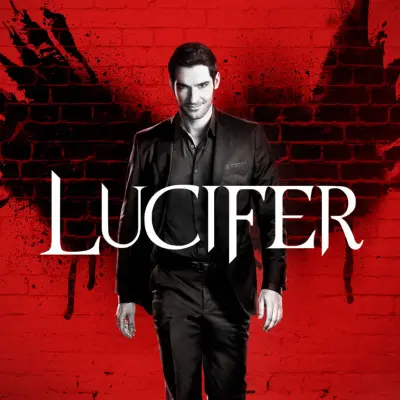Lucifer on Netflix continues being the ideal version of the series
-

"While Lucifer on Netflix is not drastically different from Lucifer on network television, it’s arguably the ideal version of the series that showrunners Joe Henderson and Ildy Modrovich always wanted to create," says LaToya Ferguson. "No, that ideal version of the series isn’t a pure adaptation of the source material either, but it’s a fun genre series with a great love for both its characters and the mythology of the world in which they inhabit. And that world is always getting more interesting. Season One was a grimier version of the show, seemingly the result of being developed by Tom Kapinos, with Len Wiseman’s directorial eye. Season Two ushered in the show as we’ve come to know it, visually, tonally, and thematically, the network season closest in concept and quality to what we would come to see of the show on Netflix. Season Three was the result of, in retrospect, a lot of network notes that resulted in that network canceling the show. Then Season Four introduced the streamlined version of Lucifer, amplifying the positives of the series established in its second season and showing that it had learned from its mistakes in its third. Lucifer is back now for its second Netflix season. Initially intended as the final season—a concept that really informs the progression of the Lee/'Mr. Said Out Bitch' (Jeremiah Birkett) premiere runner—it will be interesting to watch both halves of this season with that (and the ultimate pivot from that) in mind. Especially with the Devil in Hell/Florida (same difference) and his evil twin (also played by Tom Ellis) doing evil twin things."
ALSO:
- Lucifer producers reflect on their "big old cornball" of a show: "There's a strange thing about this show, which is, it's about God and His sons and daughters," says co-showrunner Ildy Modrovich. "It's this family, but it's about angels — the highest, most powerful beings you can imagine. But they all are broken and dysfunctional. And that is relatable." Fellow co-showunner Joe Henderson adds: "We have a very simple true north, which is: This is the story of an unworthy son who wants to feel loved, wants to feel worthy, wants to feel cared for by his father, by his family, by this woman that he's met. It all comes down to that very simple idea of someone wanting to be redeemed. And the concept behind that is, if the Devil can be redeemed, so can all of us."
- Producers weigh in on the first half of Season 5: “Thinking Season 5 was the end was a bit of a gift, because we didn’t hesitate,” says Henderson. “We leave what we thought was everything on the floor. That’s what makes Season 5 so powerful and so great, but also really challenged us to push even further in Season 6.”
- How will the events of Season 5A affect 5B?: "So much of our show is big, crazy ideas but written small," says Henderson. "It's angels, devils and demons, but it's really brother and sister. Even though we had our biggest celestial superhero battle ever, we wanted to end it on kids squabbling in the living room. This is a family story."
- Modrovich: Episode 2 was "one of the huge things we wanted to cover this season"
- Tom Ellis points out Lucifer is "really, really popular in Catholic countries: “I think it’s just a general fascination with the devil himself, as opposed to just the show,” he says.
- Ellis and Lauren German look back at Deckerstar's "precious" romance
- Lucifer drops a soundtrack for Seasons 1-5
TOPICS: Lucifer, Netflix, Ildy Modrovich, Joe Henderson, Tom Ellis
More Lucifer on Primetimer:- Living on Borrowed Time: 16 Shows That Made the Most of Their Second Chances
- The Devil(s) We Know: Six Ways TV Has Depicted Satan
- Criminal Minds was the most-streamed show in the U.S. of 2021 -- Lucifer was the top original streaming series, edging out Squid Game because of its big catalog
- A Taxonomy of TV Time-Hopping
